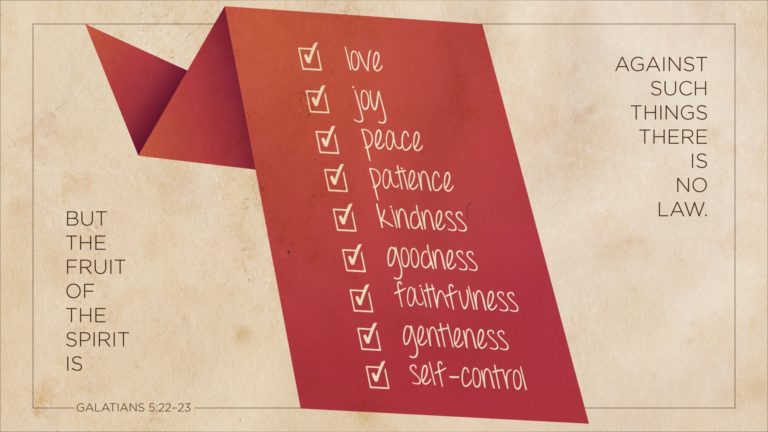The Home
Leslie Diestelkamp
Every student of history knows that as surely as the homes of a nation deteriorated, that nation became noticeably weaker. When honesty, purity, fidelity and respect for authority prevail in the homes, those characteristics will adorn the nation and it will prosper. “Righteousness exalteth a nation: but sin is a reproach to any people” (Prov. 14:34). All the financial powers that may be attained cannot bring peace and joy to a people, and education, culture and science fail to make a nation great unless they are accompanied by truth, loyalty and fear of God. Consider seriously the greatest powers that have graced this old world, and almost without exception, they have fallen in a time of moral decay.
The history of the Lord’s church can also be traced in a similar way. Consider a time when the Lord’s people, in their homes, read their Bibles, engaged in prayers, lived such lives as truly bore real spiritual fruit and gave themselves in full surrender to the authority of the New Testament, and it will be observed that the church grew and prospered and multitudes were converted. On the other hand, study church history and consider those times when, in the homes, the Bible was ignored, prayer was forgotten, the works of the flesh were evident and the authority of God’s word was minimized, and it will then be seen that the church faltered and failed in its mission to reach the lost and its influence upon humanity was almost nullified.
The Right to Exist
If we would make the church stronger, we must make the homes that make up the church better homes. Let us now notice some things that are vital if the homes of Christian people are to contribute to the welfare and influence of the body of Christ:
In the first place, if the home is to meet with God’s approval it must have a right to exist. God made man and woman “meet” for, that is suited to, each other, but he also made us fit his intention that each man and each woman have one companion and only one companion, at a time. He made us with abilities to satisfy the needs of each other. In God’s plan, marriage was not to be a plaything, and the marriage union was to last for life. When this plan of God is forgotten or abused, we usually find people establishing homes with which the Lord is not pleased. And, if a home is thus begun, it cannot be made right, even by great benevolence and hospitality, nor by piety and prayer, nor by any other substitute for genuine repentance and the fruit thereof.
“For the woman which hath an husband is bound by the law to her husband so long as he liveth; but if her husband be dead, she is loosed from the law of her husband. So then if, while her husband liveth, she be married to another man, she shall be called an adulteress: but if her husband be dead, she is free from that law; so that she is no adulteress, though she be married to another man” (Rom. 7:2,3; see also Matt. 5:32). God will bless the homes that are established in accord with his will, and through their influence will bring success to the church.
Is Home Divine?
We often say that there are three divine institutions: The home, the government and the church. By this we mean that all three have the sanction of God. He authorized them. (Let it here be remembered that only one of them-the church-is a spiritual institution). In general language, then, we can say that the home is divine-that is. it had a divine origin and there is Bible authority for the home. However, specifically, we cannot say that a particular home is divine. So many homes, are established today without approval of God’s word-homes where the union is an adulterous one-homes that are in harmony with the laws of the land, but which are not recognized by the Lord. The fact that a home exists does not make it a divine institution, or even a part of such, if God does not approve the union that formed the home.
Let us never excuse an improper, marriage relationship by supposing that God approves homes as such. He doesn’t. He approves only those homes that are ordered after his word and in harmony with his intent. The home is a divine arrangement, but each one must be scripturally arranged.
Proper Beginning Plus . . .
When a home is begun in harmony with the will of the Lord it is off to a good start, but this alone does not assure us that it will always be such as will receive God’s blessings. To be a real factor in the welfare of the church, the home must be governed by scriptural principles, and those who constitute the home must live godly and righteously in this present world to the end that many more may be able to enjoy the bliss of the eternal home in the world to come.
In the successful home the husband and father is the head (see Eph. 5:23; 6:1), and the children are in subjection to the parents. Failure to teach and require obedience, causes many, many parents to lose control of their children even while they are tiny tots, and leads to a disregard for authority on the part of older children which often involves them in crime and which certainly contributes to moral delinquency. There are few things that thrill me as much as observing a family composed of reverent and godly parents and obedient and respectful children. On the other hand, nothing is much more revolting than a home torn with strife and void of respect for people, for God or for proper authority. But the home is not a jail. Home should be a refuge from the cares and worries of the business world, the workshop or the schoolroom. When the home is as it should be, the husband and father will be happier there than anywhere else; the wife and mother will spend her time there with gladness; the children will consider it delightful-and not disgustful as so often happens now.
Home should be the place where the weak are made strong and where the strong are subject to the will of God. Home must be the place where life’s greatest joys are attained and maintained (in the physical realm). Home must be the place of peace and contentment, and we must be made to know that such are not gained by prosperity or position, but by “godliness with contentment.”
Some Failures
Many homes fail because of a wrong evaluation placed upon the material things of life. The failure to acquire “things” equal to those possessed by the neighbors or the relatives is not a disgrace and should not even embarrass us nor cause us concern. However, viewing this realistically, we find that such failure often brings divorce, desertion and disaster. Wives leave the home in search of life’s luxuries. Husbands go-or are driven-astray in efforts to supply that which is not really important. Children become disgruntled, disturbed, and disobedient because of a perverted notion as to what is important for their happiness. And, it is often not the poorest families that are most unhappy, but, many times those homes where there is abundance are the homes of greatest unrest.
When parents set an example of excessive spending, lavish living that is above their means, and greediness for that which pertains only to this life which will soon vanish away like a vapor, then children can be expected to mold their characters and bend their lives in that same worldly, carnal fashion.
Homes fail because of lack of love because the home was not founded upon love, and because that love was not properly cultivated by each party in the home. Some act like love is a contagious disease that we “catch” and also that it is like an incurable ailment that we cannot lose. But love is tender and must be nurtured faithfully if it is to survive all the storms of home life. Just as Paul admonished that Christians be “endeavoring to keep the unity of the Spirit in the bond of peace” (Eph. 4:3), so we must also endeavor to keep love and unity in the home. And, just as surely as unity will not prevail unless there is an honest effort to keep it, so peace and love will not adorn the home unless those in that home truly endeavor to have it so.
Homes fail because of willfulness. When there is a real desire on the part of each one to please the other, peace is assured. On the other hand, when there is desire to please self, then the home will be troubled. Children are usually naturally willful. They must be trained to conquer their own wills. They must be taught the principles of self-control. Actually they must be taught subjectiveness. This may spoil some initiative, or at least that is what some child ‘psychologists say, but it would be better for them to curb some wild urge that might have led to leadership, than to allow such to lead them to rebellion against parents, nation and God. The one who does not learn to surrender will surely be a problem in the home and also in the Lord’s church.
Truth Magazine II:1, pp. 10-11, inside back cover October 1957


